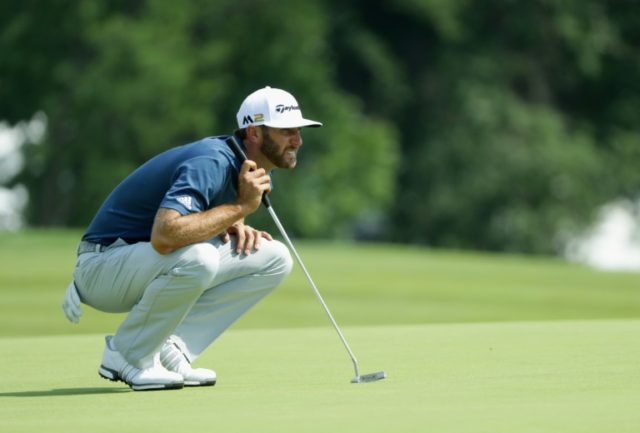The United States Golf Association stopped short of an apology to Dustin Johnson but issued “regrets” for distracting him by invoking the prospect of a one-stroke penalty without expeditiously resolving the question at the U.S. Open on Sunday.
Johnson’s ball moved on the green near the fifth hole at Oakmont, and the USGA informed him that they might penalize him for it. The decision, both in terms of invoking the possibility of a penalty during play without quickly resolving matters and the judgment that Johnson’s putter did anything to move the ball, came under criticism by Tiger Woods, Rory McIlroy, and many fans, commentators, and former pros.
The USGA wrote:
Upon reflection, we regret the distraction caused by our decision to wait until the end of the round to decide on the ruling. It is normal for rulings based on video evidence to await the end of a round, when the matter can be discussed with the player before the score card is returned. While our focus on getting the ruling correct was appropriate, we created uncertainty about where players stood on the leader board after we informed Dustin on the 12th tee that his actions on the fifth green might lead to a penalty. This created unnecessary ambiguity for Dustin and the other players, as well as spectators on-site, and those watching and listening on television and digital channels.
During any competition, the priority for Rules officials is to make the correct ruling for the protection of the player(s) involved and the entire field. In applying Rule 18-2, which deals with a ball at rest that moves, officials consider all the relevant evidence – including the player’s actions, the time between those actions and the movement of the ball, the lie of the ball, and course and weather conditions. If that evidence, considered together, shows that it is more likely than not that the player’s actions caused the ball to move, the player incurs a one-stroke penalty. Officials use this “more likely than not” standard because it is not always apparent what caused the ball to move. Such situations require a review of the evidence, with Decision 18-2/0.5 providing guidance on how the evidence should be weighed.
Our officials reviewed the video of Dustin on the fifth green and determined that based on the weight of the evidence, it was more likely than not that Dustin caused his ball to move. Dustin’s putter contacted the ground at the side of the ball, and almost immediately after, the ball moved.
We accept that not everyone will agree that Dustin caused his ball to move. Issues under Rule 18-2 often require a judgment where there is some uncertainty, and this was one of those instances. We also understand that some people may disagree with Rule 18-2 itself. While we respect the viewpoints of those who disagree, our Committee made a careful and collective judgment in its pursuit of a fair competition played under the Rules of Golf.
The controversy quickly became moot, as Johnson bested Scott Piercy, Shane Lowry, and Jim Furyk by three strokes even with the penalty he ultimately received. The U.S. Open victory comes as the talented but occasionally troubled golfer’s first triumph at a major.

COMMENTS
Please let us know if you're having issues with commenting.